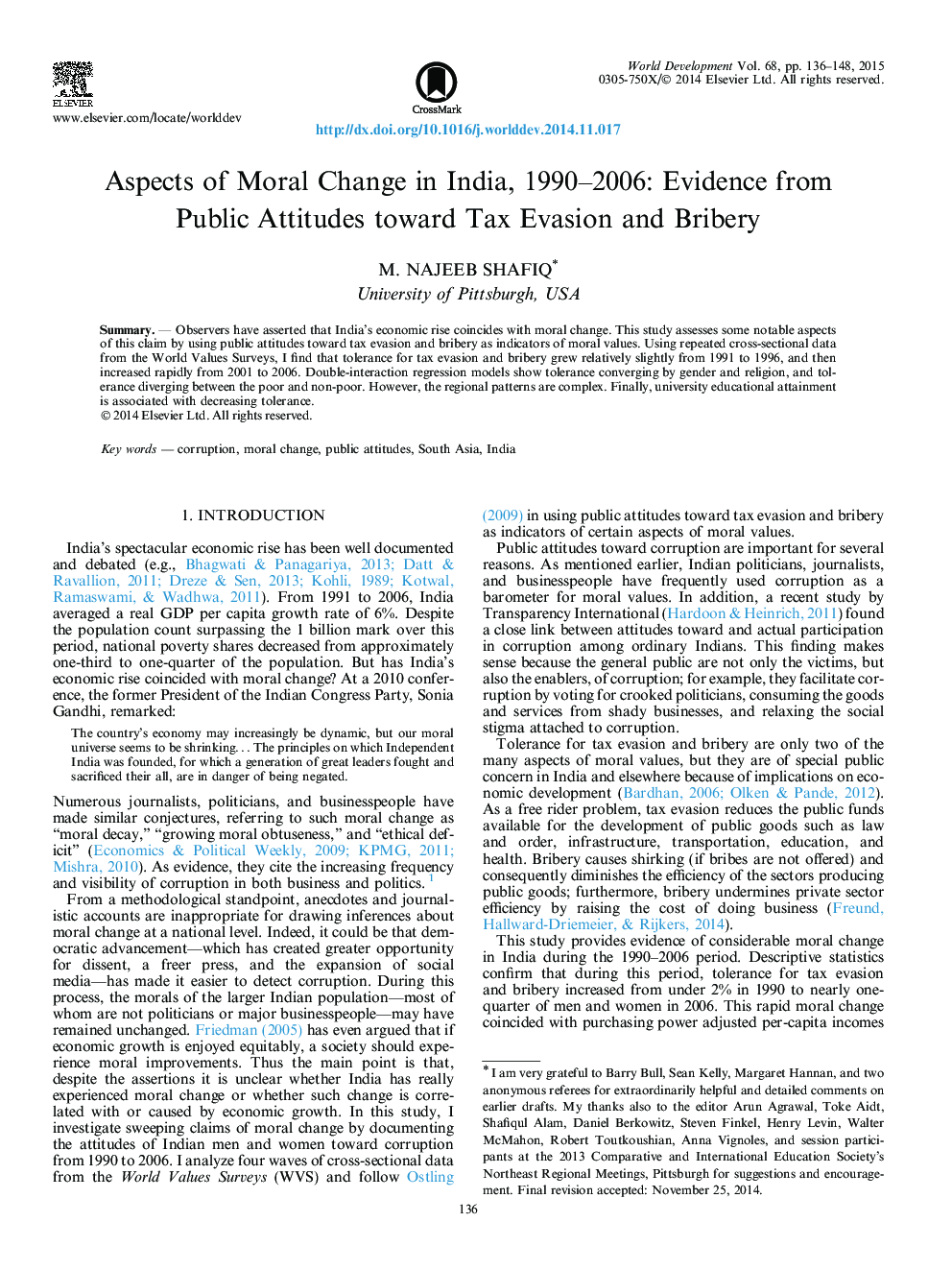| Article ID | Journal | Published Year | Pages | File Type |
|---|---|---|---|---|
| 7394061 | World Development | 2015 | 13 Pages |
Abstract
Observers have asserted that India's economic rise coincides with moral change. This study assesses some notable aspects of this claim by using public attitudes toward tax evasion and bribery as indicators of moral values. Using repeated cross-sectional data from the World Values Surveys, I find that tolerance for tax evasion and bribery grew relatively slightly from 1991 to 1996, and then increased rapidly from 2001 to 2006. Double-interaction regression models show tolerance converging by gender and religion, and tolerance diverging between the poor and non-poor. However, the regional patterns are complex. Finally, university educational attainment is associated with decreasing tolerance.
Related Topics
Social Sciences and Humanities
Economics, Econometrics and Finance
Economics and Econometrics
Authors
M. Najeeb Shafiq,
